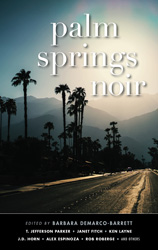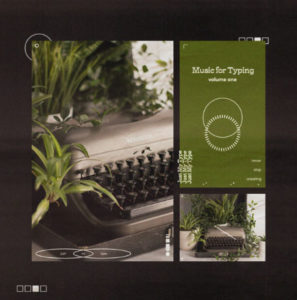
The following interview ran last year with memoirist Katherine Russell Rich ran in The ASJA Monthly (www.asja.org). I also did a radio interview with her, which you can find as a podcast on this blog by clicking here. Enjoy!
Voices on Writing: Katherine Russell Rich
Before moving to New York City, where Rich now lives, she was employed, repeatedly, by the food service industry, namely by Burger King and Roy Rogers. But the quiet trade stole her heart and she became an assigning editor at various magazines, including GQ and Allure and remained so until 1999.
Since then, she has been a full-time writer, with work in The New York Times, the Sunday Times magazine, the Washington Post, O: The Oprah Magazine, Vogue, and Salon. She has won a New York Foundation for the Arts award and fellowships from the New York Public Library’s Center for Scholars and Writers, MacDowell, and Yaddo.
Her first book, The Red Devil: To hell with cancer, and back (Crown), details the clash of cultures that occurred when I contracted a dead-serious illness that denuded my head while working for magazines that exalted perfection.
Her second book, Dreaming in Hindi: Coming awake in another language, is about a year she spent Rajasthan, India, learning to speak Hindi.
While finishing her book, she developed a bad Bubble Spinner problem. She’s now at level six with the game.
BDB: Talk about how your memoir, Dreaming in Hindi, came about.
KR: It came out of a couple of desires I’d had throughout my adult life. One was this longing, this kind of driving fantasy, to go back to school and this time, do things right. I always thought, “Okay, I slept through classes and stayed up late drinking and acted like I was on vacation for four years but if I just had another crack at things, I’d be taking neurobiology and would actually read the philosophy textbook this time around and study my butt off and I would make the dean’s list.” Yeah. Well. Of course, when I actually did end up going back to school for the book, I made the exact same mistakes, except maybe minus the boiler makers: forgot about tests, forgot I had homework due, did not shy away from having extracurricular fun. The experience made me see I’d probably make all the same general mistakes in every single life area if I were given a second chance. Though I do have to say, I really enjoyed the hell out of school this time around in a way I hadn’t the first time.
The other thing I’d been burning to do was to go all the way with a language. I had already bollixed up attempts at Spanish and French, however, and also made a fast mess out of Turkish. But maybe because I wasn’t expecting to get anywhere with Hindi, I was get somewhere with it when I wasn’t looking. I just kind of relaxed into lessons at first. When the opportunity presented itself to go off to India and learn it, I leapt.
BDB: You were an editor for years. How did this affect the writing of the
book?
KR: I’m convinced that writing and editing use different parts of the brain. When I write, I’m not firing the same synapses I do when I’m working as an editor and therefore, can’t easily draw on many of the lessons I learned as an editor. I can’t be in both heads at once, so to speak. But what I’ve found I can do is put a piece away and when I return to it later, read it as a professional editor. Also, in my time as an editor, I learned a lot about how to deal with editors, both from having to deal with editors in chief myself and from watching writers go wrong or do it right. One thing I learned, for instance, is that writers need to choose their battles. It’s important to fight for your voice and vision, but you also have to let editors do their jobs. You need to strike a balance. I have a friend, a freelance writer, who always turns pieces in with three or four intentional typos. He’s convinced that by giving them something to do, the editors then feel they’ve done work on the piece and after that, will lay off his writing. You know, I’m not sure he’s so wrong in this philosophy.
BDB: What sort of battles did you have to fight, for this book?
KR: I had four different editors on the book—an acquiring editor, one in charge through the first draft, another who took over when it was time for revisions, and a fourth who inherited the book when there was publisher had to pare down on staff and I was orphaned. The first three all had input and each one wanted something different. The trick for me in each case was not to let my ego get involved—like a lot of former editors who are used to calling the shots and then become writers, I don’t like being told what to do. So with each new editor, I had to fight a battle with myself first—to force myself to listen dispassionately and incorporate the best of what they were asking for. After that, I had to stand up for what I wanted. I didn’t want the book to go out as Son of Eat Pray Love, for instance, and for awhile, toward the end, there was sort of a push on in that direction. We had a discussion about that.
BDB: What came first—wanting to be an editor or wanting to be an author?
KR: Editor came first, no questions. For years, all I wanted was to be involved in the processes of putting out a magazine. I loved working with writers but didn’t want to be one. I didn’t particularly feel like I had all that much to say.
BDB: Why did you leave magazine editing?
KR: Couple of reasons: I could see that the field was beginning to shrink, that editors were being forced to become more beholden to advertisers, and this worried me. Beyond that, I wanted to have a voice. When you’re an editor, your job is to stay faithful to the magazine’s vision and voice and help your writers understand the perimeters. When I write for magazines, I understand that I have to stay within those perimeters. But when you write a book, you’re allowed your own style, and I wanted, for once, to explore what mine was.
BDB: How do you see the market changing? Are we just in a down time?
Think things will turn around for freelancers and the bad contracts being offered today?
KR: Unfortunately, I don’t think we’re just in a down time. I’m afraid I don’t forsee great expansion any time soon.
BDB: Had you had it on your mind to someday write a memoir, or did the idea come to you when you decided you were going to go to grad school?
KR: Actually, I never meant for Dreaming In Hindi to be a memoir. My idea was to write it a piece of immersion journalism, along the lines of Ted Connover or Barbara Ehrenreich. In the marketing, it got positioned as memoir. But I still think it’s more narrative nonfiction.
BDB: Do you feel positioning it as a memoir has helped or hindered its sale?
KR: You could make a case either way, I guess, but I try not to get too caught up in the business side of publishing. It’s not great for your writing.
BDB: You were very sick before you went to India. How did your illness
affect your wanting to live in India for a year and write this book?
KR: When I was really sick, I used to talk to another cancer patient a lot. One time, we were talking about fighting the insurance companies and she said, “Don’t you ever think, ‘What are they going to do, kill us?’” Meaning, just go for it, so what? That attitude’s informed my life ever since, including the decision to go to India.
BDB: What was the challenge in writing the book?
KR: The biggest one was figuring out how to interweave the science that’s in there—the stuff on the neurobiology of language acquisition—with the narrative and not sound like, “So there I was, sitting at the raga concert when suddenly, I remembered something the Canandian neurolinguist Michel Paradis had said.”
BDB: Any surprises along the way?
KR: Yeah—what surprised me the most was how long the book took to write. My first book, The Red Devil, had taken nine months, and that was working full time. When I signed to write Dreaming in Hindi, I told my friend Jill Ciment that I was expecting to finish it in a year. When I was wrapping it up at six years on, she was still laughing.
BDB: What’s on your nightstand presently?
KR: Remains of the Day; a book on Victorian plant hunters; the new Lorrie Moore novel; The Coral Thief by Rebecca Stott, a fine British writer. The Coral Thief is riveting and so gracefully done.
BDB: How do you see the memoir market?
KR: For a while, people kept proclaiming that memoir had run its course, but the memoir market will continue on in a healthy state as long as the obsession with celebrity remains hyperinflated; i.e., for a long time. What we think of as memoir now came into existence, to some extent, as a reaction to the overheated celebrity culture that got its start in America in the ‘80s. That world became so pervasive, so surreal, it sparked a desire to know about other people, people whose lives were conceivably like yours. Memoir keeps getting better and worse. Worse in that a lot of stories have been written now, so in some regards, there’s a top-this feeling to the genre. So your mother gave you to her crazy psychiatrist to raise? Sorry; that’s been done. Better in that you have to be a better writer now than you did 15 years ago to break get a memoir published. Through the years, the bar’s been raised.
BDB: What’s on the horizon, writing wise?
KR: I’ve got the outlines of a novel in my head. As soon as I’m off tour with Dreaming, I really want to see if they’ll take shape on paper. And if they don’t—what are they going to do, kill me?
end….




 Support Indie bookshops and this site by purchasing books through my BookShop
Support Indie bookshops and this site by purchasing books through my BookShop
